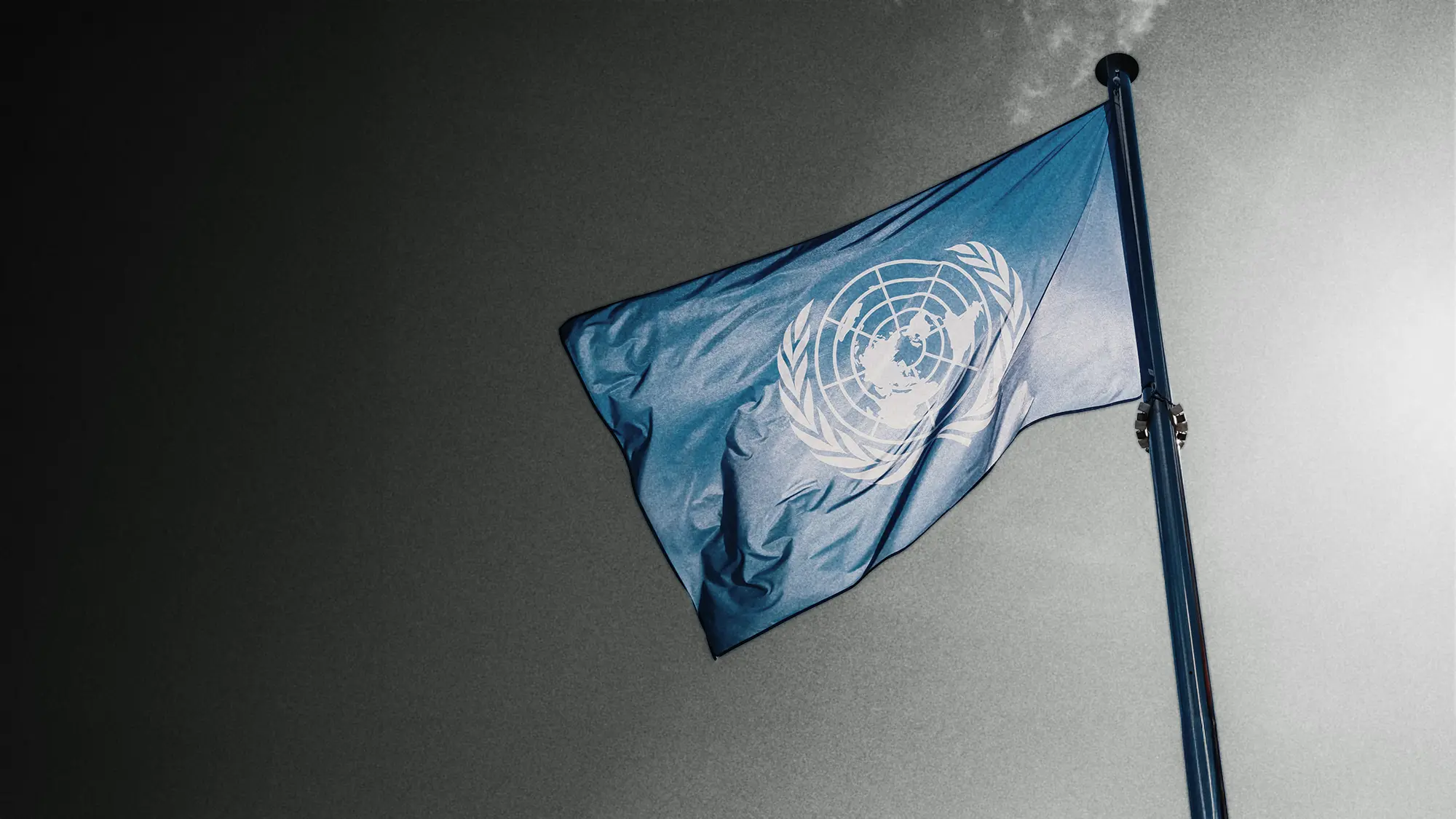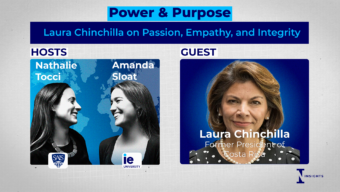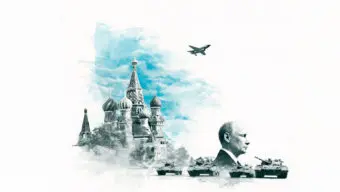Every September, the United Nations General Assembly turns New York into the epicenter of global diplomacy, with 193 Member States gathering to debate global priorities. This year, the UN turns 80, in a world marked by financial strain, geopolitical instability, and growing doubts about its relevance. The moment calls for reflection. Can the United Nations reinvent itself to remain the central forum for global cooperation and order?
Eighty years on, the UN remains the stage for much of world politics. Its achievements are undeniable: peacekeeping missions that have contained conflicts, international cooperation that has enabled landmark agreements on health, poverty reduction, and human rights, and the creation of the 2030 Agenda, a shared framework of goals that remains essential for a fairer, more sustainable future.
But the UN is experiencing growing pains. The Security Council is the clearest example of this. Its veto power, granted in 1945 to the United States, Russia, China, the United Kingdom, and France, reflects the balance of power at the end of the Second World War. It no longer suits the realities of the 21st century. In practice, the veto has repeatedly blocked action in conflicts in, for example, Syria, Ukraine, and Gaza. Proposals to expand the Council – by adding permanent seats for India, Brazil, Germany, Japan, and the African Union – have been circulating for decades but entrenched interests have prevented the Council from evolving. According to Bruce Jones of the Brookings Institute, it is this paralysis and resistance to change that undermines the Council’s legitimacy and keeps it locked in a postwar order. The point here seems clear: if the UN cannot even reform its most important body, how can it credibly claim to be adapting to today’s global challenges?
The urgency is accentuated by a funding crisis. The UN now faces real operational risks as Member States fall behind on their contributions, with only 61 nations paying their dues in full. At the heart of the problem lies its largest donor, the United States, which not only owes arrears but, under Donald Trump’s leadership, is weighing drastic cuts to international cooperation. Washington has traditionally provided 22% of the UN’s regular budget and 27% of peacekeeping funds, but it has begun to scale back – leaving the institution fighting for survival.
Following the US in funding is China, which now provides around 20% of the UN’s regular budget. However, Beijing consistently pays late and this has created cash flow problems for the UN. And, at the same time, China provides limited voluntary contributions, which is arguably the funding stream that gives the UN real impact. As noted recently by the Financial Times, this combination makes China both indispensable and unpredictable: it seeks greater influence in UN leadership while withholding the support that sustains day-to-day operations. This, combined with the United States’ retrenchment creates a fragility at the top of the funding pyramid that leaves the UN in a rather precarious position.
The fallout is becoming more and more visible. The UN80 initiative calls for a 20% cut to its budget and workforce, along with deep reductions in health, refugee, and humanitarian programs. Thousands risk losing access to essential services, jeopardizing livelihoods and reversing decades of human development gains.
To economize further, the UN recently announced that some of its agencies, including parts of UNICEF, UN Women, and UNFPA, will be relocated to Nairobi by the end of 2026. This cost-saving measure is more than an accounting exercise. It carries symbolic weight: an institution signaling its intent to embrace the Global South and reduce the dominance of traditional Western powers.
It’s important to note that UN legitimacy is not only about efficiency and funding; it’s also about representation. Thus, the relocation of agencies to Nairobi is part of a broader global trend: the growing confidence of the Global South as a political and economic bloc. There is now the African Union’s new seat at the G20, India is framing itself as the voice of the Global South, and Brazil has renewed focus on climate and inequality. So, what remains to be seen is whether the UN will adapt to this new energy or whether the parallel forums – the G20, BRICS, and regional blocs – will increasingly displace it.
Driven by economic pressures and the symbolic resonance of its 80th anniversary, the UN has launched a reform agenda designed to confront today’s crises and tomorrow’s challenges. The UN80 initiative has three priorities:
- Improving internal efficiency and working methods.
- Reviewing the implementation of Member States’ mandates.
- Conducting a strategic assessment of structural changes and program realignment.
These are important, yes. However, reform cannot be limited to bureaucratic streamlining. The UN was created in the aftermath of one world war to prevent another, but today’s issues are very different: climate change, artificial intelligence, digital governance, cybersecurity, and large-scale migration. These challenges go across borders, and this demands a new level of cooperation. While climate summits have gained visibility, other areas – such as global AI governance – remain strikingly underdeveloped. It’s important that reform makes it possible for the UN to recognize and address these developing issues. Otherwise, it risks becoming irrelevant.
While these proposals are not new, the anniversary framework elevates them from routine reform to a matter of institutional survival. The UN finds itself at a defining crossroads: it must transform without being dismantled, innovate without losing its essence, and preserve credibility in the multilateral arena – or risk the gradual erosion of relevance in a turbulent, divided world.
There are a few scenarios. The UN could manage a limited renewal, stabilize its budget, and push some modest reforms that keep its credibility intact. It would remain as a common forum for crisis mediation and uphold some capacity for peacekeeping, while giving smaller states a platform to balance great-power rivalry. Another scenario is that the UN could stagnate and remain a symbolic forum that is increasingly overshadowed by regional alliances and blocs like the G20 and BRICS. In that case, we must worry about how much global coordination we stand to lose when it comes to climate, migration, and cybersecurity – not to mention defending democracy and human rights. The worst-case scenario, of course, is that we watch the UN slip into decline thanks to funding gaps and political paralysis, and become a mere stage for rhetoric without action.
Eightieth anniversaries are often symbolized by the oak, a reference to strength, resilience, and durability. Those are precisely the qualities the UN will need now if it is to truly serve as the backbone of international order, grounded in the peace and cooperation the world urgently needs.
As Secretary-General António Guterres has reminded us, “we cannot build a future for our grandchildren with a system built for our grandparents.”
© IE Insights.











